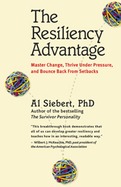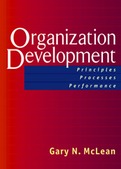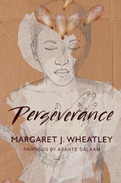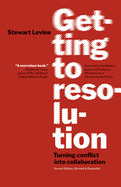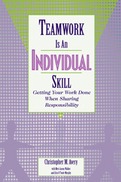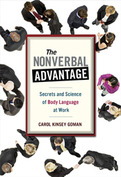- By the author of the bestselling The Survivor Personality
- The first organized, research-based program that walks people through the process of learning how to become highly resilient
- Not a "recovery" book, but a book for psychologically healthy people who are interested in developing higher levels of resiliency
Author Gary McLean surveys different ways to assess an organizational situation—including a comparison of the Action Research and Appreciative Inquiry models—and provides forms for devising an action plan based on that assessment. He then looks at how to choose and implement a range of interventions at different levels, as well as how to evaluate the results of an intervention.
Organization Development goes beyond the organizational level to look at the application of OD on community, national, regional, and global levels. And it successfully combines theory and practice; process and outcomes; performance and affective results; effectiveness and efficiency.
- Bridges the gap between theory and practice
- The only textbook to look at applying organization development principles at the community, regional, national, and global levels
- Proposes a model of organization development that encompasses all of the most relevant approaches
2010
-
By the bestselling author of Leadership and the New Science and Turning to One Another
-
Thoughtful, compassionate reflections on how we can carry on with joy despite difficulties, challenges, and disappointments
-
Illuminated by both beautiful original paintings and by poems and quotations from a variety of traditions and cultures
In this inspiring and beautifully illustrated book, bestselling author Margaret Wheatley offers guidance to people everywhere for how to persevere through challenges in their personal lives, with their families, at their workplaces, in their communities, and in their struggles to make a better world. She provides hope, wisdom, and perspective for learning the discipline of perseverance.
Wheatley does not offer the usual feel-good, rah-rah messages. Instead, she focuses on the situations, feelings, and challenges that can, over time, cause us to lose heart or lose our way. Perseverance is a day-by-day decision not to give up. We have to notice the moments when we feel lost or overwhelmed or betrayed or exhausted and note how we respond to them. And we have to notice the rewarding times, when we experience the joy of working together on something hard but worthwhile, when we realize weve made a small difference.
In a series of concise and compassionate essays Wheately names a behavior or dynamicsuch as fearlessness, guilt, joy, jealousythat supports or impedes our efforts to persevere. She puts each in a broader human or timeless perspective, offering ways to either live by or transcend each one. These essays are self-containedyou can thumb through the book and find what attracts you in the moment. Perseverance helps you to see yourself and your situation clearly and assume responsibility for changing a situation or our reaction to it if its one that troubles us. There deliberately are no examples of other people or their experiences. You are the exampleyour personal experiences are the basis for change.
In addition to Wheatleys graceful essays there are poems and quotations drawn from traditions and cultures around the world and throughout history. The book is deeply grounded spiritually, accessing human experience and wisdom from many sources. This grounding and inclusiveness support the essential messagehuman being throughout time have persevered. Were just the most recent ones to face these challenges, and we can meet them as those who came before us did. As Wheatley quotes the elders of the Hopi Nation: We are the ones we have been waiting for.
- The first book to identify the individual-rather than group-behavior skills vital to every team's success
- Offers specific strategies followed by application exercises to help readers be powerful and thrive in teams, partnerships, and collaborations
- Reveals step by step how readers can be achieve outstanding business results through building responsible, effective, and productive relationships at work
In The Nonverbal Advantage, Carol Kinsey Goman combines the latest research and her twenty-five years of practical experience as a consultant, coach, and therapist to offer a fun and practical guide to understanding what we and the people we work with are saying without speaking. While firmly grounded in recent discoveries in evolutionary psychology, neurobiology, sociology, criminology, anthropology, and communication studies, Goman writes in an informal, conversational tone and illustrates her points with cartoons, photos, and entertaining anecdotes. She includes dozens of simple and enlightening exercises readers can practice on and off the job to gain control over the message their body is sending.


